Curriculum/degree overview: The Self-Paced Program, offered in both paper and web-based formats, is specifically designed to make learning as flexible as possible. A wide variety of courses is available and you can take up to six months to complete each course. Students can complete degrees at the associate and bachelor's levels. This program serves adult men, with college credit offerings. Instruction is on-site, face-to-face and remote.
Curriculum overview: Tennessee Higher Education Initiative disrupts systems of harm, creates opportunities for autonomy and success through education, support, and advocacy with and for justice impacted individuals.
This program serves adult men, with college credit offerings. Instruction is on-site, face-to-face and remote.
Admissions application: The Chillon Project at Life University provides credit-bearing classes and degrees to people in prison and formerly incarcerated people in Georgia; creates learning communities grounded in principles of compassion and conflict transformation; and shares resources and builds skills that enable people to thrive, benefit others, and build the world they wish to see, no matter where they are. This program serves adult women, with college credit offerings. Instruction is on-site, face-to-face.
Annual report: RTA uses the transformative power of the arts to help people in prison develop skills to unlock their potential and succeed in the larger community. This program serves adult women, with no college credit or non-credit offerings. Instruction is on-site, face-to-face and remote.
Understanding the Landscape of Higher Education in Prison Survey 2018-2019
A CONFIDENTIAL FOLLOW-UP TO THE 2020 ANNUAL SURVEY OF HIGHER EDUCATION IN PRISON PROGRAMS
In December 2017, Lumina Foundation provided support to the Prison University Project (PUP) and the Alliance for Higher Education in Prison (the Alliance) to reflect upon and document the key characteristics of high-quality prison higher education programs, and to inform other stakeholders in the field, including new and experienced practitioners seeking to achieve equity and excellence in their work, policy leaders, philanthropy, and others.



